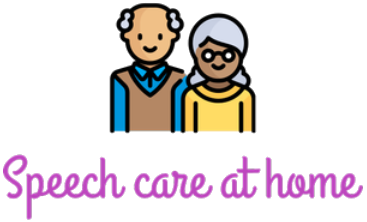The Importance of Articulation Assessment
813-344-3207

Introduction to Articulation Assessment
Articulation assessment is a comprehensive evaluation process designed to diagnose and understand an individual’s speech production abilities. It involves analyzing various aspects of speech, such as sound formation, phonological patterns, and oral-motor skills. Through a series of standardized tests, observations, and interactions, speech-language pathologists (SLPs) assess the clarity, accuracy, and intelligibility of an individual’s speech.
The assessment process begins with a thorough case history review, where the SLP gathers information about the individual’s medical history, developmental milestones, and previous speech therapy interventions. This step provides valuable insights into the individual’s communication profile and helps guide the assessment process.

During the assessment, the SLP administers a range of standardized tests and informal assessments to evaluate the individual’s speech sound production abilities. These assessments may include:
Single-word articulation tests: Assess the individual’s ability to produce specific sounds in isolation.
Sentence-level assessments: Evaluate the individual’s speech clarity and intelligibility in connected speech.
Phonological processes analysis: Identify patterns of sound errors and phonological rules affecting the individual’s speech.
Oral-motor examination: Assess the strength, coordination, and movement of the oral structures involved in speech production.
Through these assessments, SLPs can pinpoint areas of difficulty, determine the underlying causes of articulation disorders, and develop tailored intervention plans to address the individual’s needs.
Understanding Articulation Disorders
Articulation disorders can manifest in various forms, ranging from mild to severe. Common types of articulation disorders include:
Phonological disorders: Characterized by consistent patterns of sound errors or simplifications based on phonological rules.
Apraxia of speech: A motor speech disorder characterized by difficulty planning and coordinating the movements necessary for speech production.
Dysarthria: A neuromuscular disorder affecting the strength, coordination, and control of the muscles involved in speech.
These disorders can significantly impact an individual’s ability to communicate effectively, leading to frustration, social isolation, and academic difficulties. Early identification and intervention are crucial for improving communication outcomes and enhancing quality of life.
The Role of Articulation Assessment in Intervention
Articulation assessment serves as the foundation for developing targeted intervention plans tailored to the individual’s specific needs. Based on the assessment results, SLPs design therapy goals and strategies to address the underlying deficits and promote improved speech clarity and intelligibility.
Intervention approaches may include:
Articulation therapy: Targeting specific speech sounds or patterns through structured activities and exercises.
Phonological awareness training: Enhancing the individual’s understanding of the sound structure of language and its relationship to written language.
Motor speech therapy: Focusing on improving the coordination and control of oral-motor movements for speech production.
AAC (Augmentative and Alternative Communication) strategies: Implementing alternative communication methods, such as sign language or communication devices, to supplement verbal communication.
Therapy sessions are tailored to the individual’s age, interests, and learning style, with a focus on engaging activities designed to promote progress and carryover of skills into everyday communication contexts.
The Importance of Early Intervention
Early intervention is critical in addressing articulation disorders and maximizing communication outcomes. Research has shown that children who receive timely and appropriate intervention demonstrate significant improvements in speech production and overall communication skills.
By identifying articulation challenges early on, SLPs can implement targeted interventions that capitalize on the brain’s plasticity and facilitate more efficient learning and skill development. Early intervention can also prevent the development of secondary issues, such as academic difficulties and social-emotional challenges, associated with communication disorders.
Unlocking Communication Potential with Speech Care at Home
Articulation assessment is a vital step in the journey toward improved communication for individuals with articulation disorders. By providing valuable insights into speech production abilities and guiding targeted intervention plans, articulation assessment empowers individuals to unlock their communication potential and engage more fully in social, academic, and professional settings.
At Speech Care at Home, we understand the transformative power of effective communication. Our team of experienced speech-language pathologists is dedicated to providing comprehensive articulation assessment services tailored to the unique needs of each individual. Through personalized intervention plans and compassionate care, we strive to help individuals overcome communication barriers and achieve their full potential.
If you or a loved one is experiencing challenges with articulation, don’t hesitate to reach out to Speech Care at Home. Together, we can embark on a journey toward improved communication and enhanced quality of life.
Speech Care at Home

